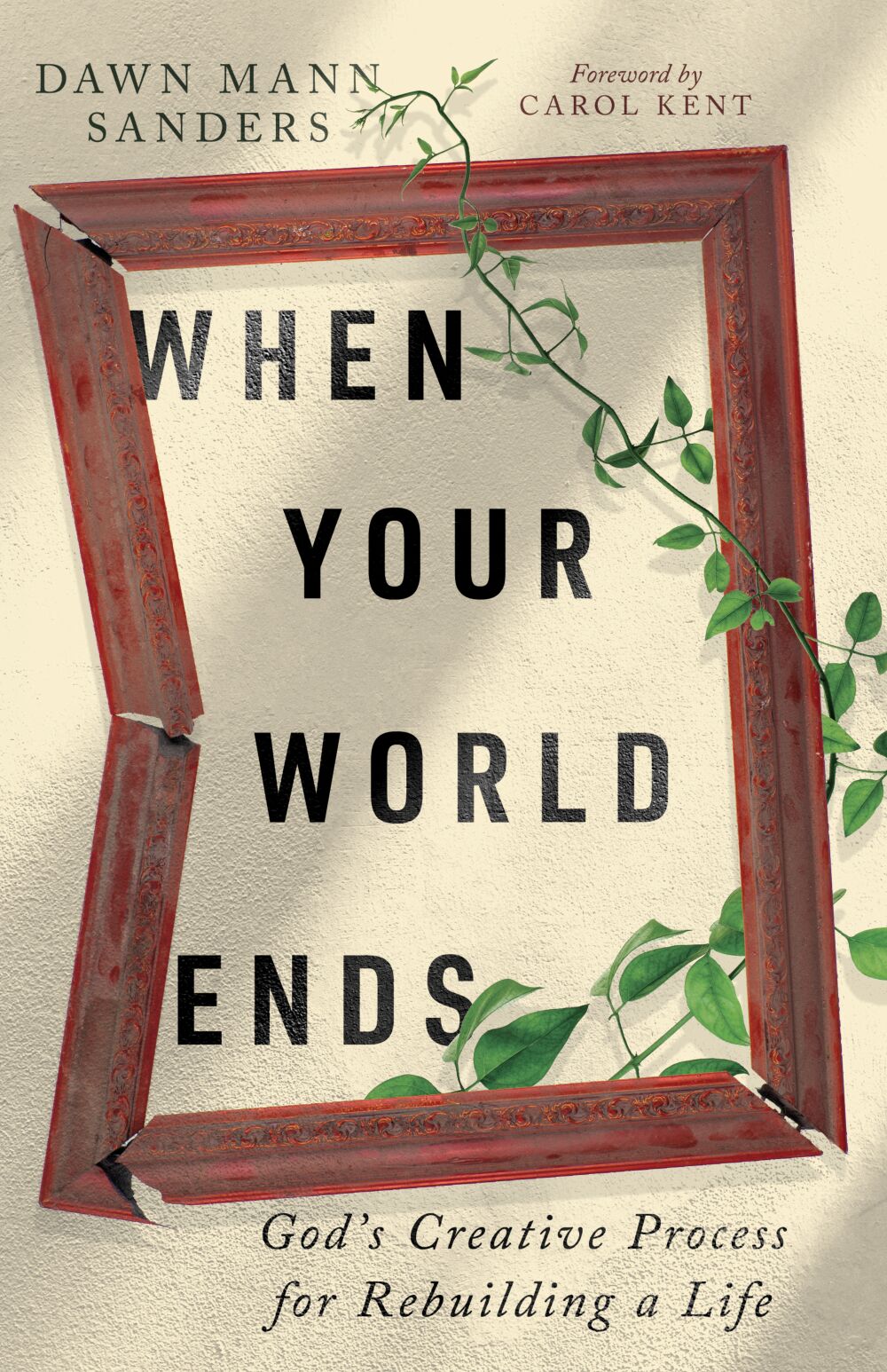How to Respond When Life Happens Part 10
If my story began the same way Naomi’s does in the book of Ruth, it would go something like this:
Now it came to pass, after being diagnosed with Type 2 Diabetes and several months of running to lose weight to lessen its impact, a man died of a massive heart attack during his afternoon jog. The man left a wife of two years who had two miscarriages in the eight months preceding his death. The man’s name was Reggie; his wife’s name was Dawn. In the days following his death, Dawn struggled to create a new life—one without her husband and their children in it.
What happened was more of a series of circumstances that left me in a situation—a state of affairs.
I often write about creating a new life after a catastrophic event. But as you can see from the paragraph above, what happened to me was more than a single isolated event. What happened was more of a series of circumstances that left me in a situation—a state of affairs.
A state of affairs… This phrase gives the connotation of condition or quality. In describing what was going on in my life at the time of Reggie’s death, the paragraph above provides a picture of the condition or quality of my life when Reggie died—my situation.
Part 10 of How to Respond When Life Happens
The second sentence in Ruth 1:1 begins with the phrase “And a certain man.” At this point in the story, the author hasn’t told us the man’s name. In fact, this is the first time the author mentions the man—or any other people, for that matter. Prior to this, the author only shares the events occurring at the time of the opening—the situation.
Now it came to pass, in the days when the judges ruled, that there was a famine in the land. And a certain man of Bethlehem, Judah, went to dwell in the country of Moab, he and his wife and his two sons. The man's name was Elimelech; his wife's name was Naomi; his sons were named Mahlon and Kilion - all Ephrathites from Bethlehem in Judah. They all went to the country of Moab and settled there.
~ Ruth 1:1
As you’ve probably surmised from the title and my intro, today’s blog post is about the situation that opens the book of Ruth—Naomi’s situation. I hope it blesses you.
Why is Naomi’s Opening Situation Important?
The author of the book of Ruth, the prophet Samuel, doesn’t share the names of the characters at the beginning of the story until the third sentence, which is in verse 2. Rather than begin by identifying this man and his family by name, Samuel begins with their backstory—their situation.
Even when Samuel does mention them, he doesn’t name them. Samuel doesn’t name them because at this point in the story, who they are is less important than what they’re going through. The man’s name is less important than his situation. Don’t get me wrong. His name—who he is—is important, but not yet. Everyone in the story is important, but they aren’t named yet because, at this point in the story, their names—who they are—is less important than their situation.
So, Samuel began there—with their situation. Now, that’s important.
This man’s situation was important to the story—and important to him. I bet when going through a catastrophic event—a living-through-the-end-of-the-world-as-you-know-it moment, your situation is important to you as well. And if you’re like I was, your situation was more important than your name.
In fact, during my living-through-the-end-of-the-world-as-you-know-it moment, resolving the pain caused by my situation was more important than everything else—including my name. I didn’t care if people knew who I was. Truth be told, I preferred they didn’t. I wanted resolution, not recognition.
Since the situation looms so large in your life, starting with the situation provides something you can relate to, which is one of the reasons authors begin this way. Share on XBut there are other reasons Naomi’s, this man’s wife’s, situation is more important…
The Reality of the Situation
The first thing Samuel shares about the situation at the beginning of Ruth that demonstrates its importance is it happened. As I shared previously, the phrase “Now it came to pass” means “it happened.”
The story Samuel is about to share really happened. Though The Message Bible translates the phrase “Once upon a time,” Samuel wants you to know this really happened. It isn’t make-believe. This story is real. These people and their lives are real.
In other words, this can be believed. You can trust this. You can trust what I’m about to tell you because this really happened.
In this story, God transforms the land. Most importantly, God transforms the people.
Yes, the story begins with a situation. That situation happened. But it’s a story of transformation. In this story, God transforms the land. Most importantly, God transforms the people. Specifically, God transforms the lives of two women—Naomi and Ruth. And through them God transforms the world.
That happened. You can trust it. God transforming lives really happens. You can trust that too. You can trust God.
God transforming lives really happens. Share on XWhen dealing with our situations—our catastrophic events and living-through-the-end-of-the-world-as-we-know-it moments, we need to trust God. The reality of the situation denoted in the phrase “Now it came to pass” can help you do that. The reality of Naomi’s situation can help you trust God because it really happened. “It came to pass.”
The Timing of the Situation
The second thing the prophet Samuel shares about the situation at the beginning of Ruth is its timing—when it happened. As I shared previously, the phrase “in the days when the judges ruled” speaks to when the story begins, meaning the period between Joshua’s death and Saul’s reign.
This period was marked by chaos and leadership churn. Israel had crossed over the Jordan River and were beginning to possess the Promised Land. In other words, they were fighting. They were fighting to regain ownership of the land.
Yes, regain ownership… Prior to their captivity in Egypt, the children of Israel had ownership, but lost it when they were enslaved in Egypt. When the book of Ruth starts, Israel is fighting to regain what they’d lost. And during the fight, their leadership repeatedly changed.
They were fighting to regain ownership of the land.
That’s how I felt when Reggie died. In the eight months prior to Reggie’s death, I miscarried two pregnancies, but we were still trying to expand our family. I felt like I was fighting to get back all that the devil stole from me—because I was and I wanted it all back. Then, by killing Reggie, my leadership changed.
I’m still in the fight to grow and build the Kingdom. Share on XYes, I was in a spiritual battle. The enemy had declared war against me to keep me from doing exactly what I’m doing right now—growing and building the Kingdom of God. Then, I was trying to grow and build the Kingdom through physical offspring. Now, I’m growing and building the Kingdom through spiritual offspring. Either way, I’m still in the fight to grow and build the Kingdom.
At the start of the book of Ruth, Israel’s fight wasn’t going as well as it could—or one could say should. It could—and possibly should—have gone better because God had already won the war. Oddly, instead of regaining all of their property, “in the days when the judges ruled,” Israel only regained the majority of it.
Now, some of you may say a majority would satisfy you—and maybe it would, but should it? Well, a majority won’t and didn’t satisfy God. A majority wasn’t enough—wasn’t good enough—for Him. God had more for Israel and wanted Israel to receive it. Since this is Naomi’s story, He also had more for her. He has more for us too. And as for me and my house, I want all that God had for us. What say you?
The Essence of the Situation
The third thing the prophet Samuel shares about the situation at the beginning of Ruth is the main event—the catastrophic event that happened. In the book of Ruth, the catastrophic event was a famine in the land. A famine is suffering extreme hunger. In other words, an emptiness that can’t be satisfied. Something is missing from your life—and there’s nothing you can do to replace it. There’s nothing you can do to assuage your hunger, your emptiness. At least, it feels that way.
When something is missing from your life—it can feel like there’s nothing you can do to assuage the emptiness. Share on XIn many situations, like the situation at the beginning of Ruth, the catastrophic event is the physical manifestation of a spiritual problem. In the book of Ruth, God created the famine in response to Israel’s continued disobedience. God created the emptiness in their lives to motivate Israel to fill it with Him.
Thus, when Israel closes the spiritual gap, God would respond by closing the physical gap—physical emptiness. Once Israel returned to God, God would return to providing for them. Basically, if they didn’t treat Him like their provider, God would stop being their provider. If Naomi’s family didn’t treat Him like their provider either, God would stop being their provider too.
Try to quickly recognize your situation, then quickly move where God is directing you to move.
The same may be true for us. God may have allowed a catastrophic event to enter your life. But He allowed it to get your attention. There was something you were missing in regards to your relationship with Him and God is using this catastrophic event to move you in the direction He wants you to go.
Therefore, the longer it takes you to see that and the longer it takes for you to move in response, the longer your emptiness will last. The solution: Quickly recognize your situation, then quickly move where God is directing you to move.
The Connection to the Situation
The fourth thing the prophet Samuel shares about the situation at the beginning of Ruth is the characters’ connection to the catastrophic event. The famine was in the land—in Israel’s land. Why does this matter? Because the man was an Israelite from the town of Bethlehem in the tribe of Judah.
In other words, the famine was in the man’s land. The famine being in the man’s land connected the man, and his family, to the famine. Therefore, God didn’t send the famine to another people. God sent the famine to his people—the man’s people, Naomi’s people. God sent the famine to the man and his family, Naomi’s family.
You can't outrun the problem. Share on XConsequently, they couldn’t outrun the famine by going to Moab as they tried to do. Even though the famine wasn’t in Moab, running to Moab wouldn’t save them—and if you read on, you see it didn’t. Running to Moab wouldn’t save them because it was a spiritual famine sent by God that manifested itself in the physical. Thus, the famine wasn’t only in the physical land; the famine was also in the community—the community of Israel, not Moab.
Since they (this man and his family, Naomi’s family) were part of the community of Israel and community can transcend physicality, it didn’t matter where they were physically. As members of Israel’s community, the famine still touched them in Moab. In starker terms, the famine could still reach them in Moab. If it could still reach them in Moab, the famine could still kill them in Moab. And if you read on, you see it did.
You can run, but you can’t hide from a spiritual famine.
The Common Thread Tying the Situation Together
The common thread tying each of the four things Samuel reveals about Naomi’s situation (reality, timing, essence and connection) together is God and her family’s relationship to Him. Each of these four aspects speaks to the condition and quality of their relationships with God:
- The reality of the situation means we can trust God.
- The timing of the situation—“in the days when the judges ruled”—means Israel wasn’t consistently submitted to God. They had a cycle of disobedience –> defeat –> distress –> deliverance, and –> back to disobedience (Judges 2: 8-22).
- The essence of the situation was a famine in the land that God sent to break Israel’s cycle of disobedience.
- The connection to the situation was Naomi’s family. As members of Israel’s family and community, they were connected by blood. So, leaving the physical land didn’t break connection to the land. Leaving didn’t end their disobedience. It exacerbated it. As a result, their connection to the famine continued regardless of where they were physically.
Because each of these aspects of Naomi’s situation speak to the condition and quality of her family’s relationships with God, each is of the utmost importance to Samuel, the story, and Naomi’s family. Most importantly, things that speak to the condition and quality of our relationships with God are of the utmost importance to Him. So, they—and if necessary, correcting them—should be of the utmost important to us.
Until next time…
Agape—loving and loved by Jesus,
Dawn
The “How to Respond When Life Happens” Series:
- Part 1 – How to Respond When Life Happens
- Part 2 – The Freedom to Do You
- Part 3 – The Purpose of Chaos
- Part 4 – The Difference Between Felt Needs and Real Needs
- Part 5 – Who’s Ruling You? An Article about Submission
- Part 6 – Famines in the Bible
- Part 7 – The Differences Between Famines, Fasts and Feasts
- Part 8 – Famine in the Community
- Part 9 – The Meaning of the Land as Israel’s Possession
- Part 10 – What’s Important about Naomi’s Opening Situation in the Book of Ruth?
- Part 11 – Three Locations in the Book of Ruth
- Part 12 – Traveling in the Book of Ruth vs. Now
- Part 13 – Naomi’s Family’s Names in the Book of Ruth







